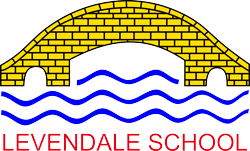Modern Foreign Language (French)
Modern Foreign Language (French) Curriculum Aims
At Levendale Primary School, we believe a high-quality languages education should ignite children’s curiosity and deepen their understanding of the world beyond their classroom walls. The teaching should enable children to express their ideas and thoughts in another language and understand and respond to its speakers – both in spoken word and writing. Above all, we want our pupils to have fun learning a new language and develop self-confidence, curiosity and a sense of achievement, regardless of ability.
- Children in Key Stage Two have regular French lessons taught following the structure and resources of the North Yorkshire Scheme of work in addition to other materials (e.g. Linguascope) to ensure coverage and progression across school
- Children progressively acquire, use and apply a growing bank of vocabulary organised around topics such as ‘Les Animaux’.
- It is intended that when pupils leave our school they have embedded the skills of listening, speaking, reading and writing necessary for them to feel confident to apply their French learning in a variety of contexts and to have a strong foundation for learning languages in more depth in their continued education.
Levendale Curriculum Goals: French
| Healthy and Safe | Children are encouraged to be supportive of their peers during MFL lessons, so all children feel safe to participate Children are taught about how to use language and communication to keep themselves safe if they visit other countries. Children learn about different cultures and customs. Children make links between our own language and languages from other countries. Confidence is built with carefully planned introduction of new language with visual clues |
| Positive Mindset | Children of all abilities are encouraged to participate within lessons and to carry out group and independent learning tasks. Games and songs are used to make learning French an enjoyable and engaging experience |
| Respect | Children are taught to listen to each other when practising vocabulary and offer positive support to their peers. Children are encouraged to participate in conversation work appropriately- speaking at an appropriate volume. |
| Independence | Children are encouraged to understand the relevance of what they are learning in languages and how it relates to everyday life, job opportunities and travel. Assessment allows for the next steps for learners to be planned and identifies children, who need challenge. Children are encouraged to try pronouncing new vocabulary or work out what it could be using their knowledge of English before the teacher steps in. Children are encouraged to look for similarities in English language to help them in translating text or spoken words. Links with the secondary school allow for children to participate in letter writing correspondence with KS3 children towards the end of their learning journey in UKS2. French vocabulary for dates and weather displayed within all KS2 classrooms for children to change on a daily basis |
| Pupil Voice | Children are encouraged positively to pronounce words and join in with spoken segments of the lesson to develop confidence in the spoken language. Children are given the opportunity to say what they would like to learn and give feedback on their experience. |
| Aspirational | Vocabulary introduced is challenging to all abilities. Children build on their vocabulary year by year so they collect a bank of French vocabulary as they progress through school. French curriculum progression extends knowledge, skills and vocabulary. |
Implementation
Children are encouraged and supported to develop their speaking and listening skills through conversational work, singing activities and games. As confidence and skill grows children begin to record their work through pictures, captions and sentences.
- Engaging games and songs are used to help improve memory and recall
- Displays around and outside of school are used to remind children of key vocabulary
- Pupils are given opportunities to engage in conversation, ask and answer questions, express opinions and respond to those of others
- Pupils are taught to speak in sentences using familiar vocabulary, phrase and basic language structures
- Pupils are taught to develop accurate pronunciation and intonation
- Pupils are given opportunities to present ideas and information orally
- Pupils are taught to read carefully and show understanding of words and phrases in French
- Pupils broaden their French vocabulary through learning new words and phrases for each topic
- Pupils are introduced to and attention is drawn to basic French grammar e.g., feminine and masculine forms and the conjugation of some high-frequency verbs; key features and patterns of language and how the structure of some simple sentences in French differs from English
Impact
Assessment criteria is used to enable teachers/TAs to assess the progress of children in their language skills as they move through school, ensuring that all children are supported and challenged as appropriate. In addition to assessing language skills, teachers/TAs also assess pupils’ levels of engagement with French using a colour-coded system. This ensures that all children are monitored, so adjustments can be made to ensure that every child’s language-learning experience is fulfilling our intent of having fun, loving learning and developing self-confidence, curiosity and a sense of achievement, regardless of ability. Working together with our partner secondary school – Conyers, provides children in Upper Key Stage Two with a variety of extra-curricular activities to promote their engagement in the subject. Pupil Voice is also used to further develop the MFL curriculum at Levendale Primary School, through open questioning of pupils’ views and attitudes towards learning a language.
Statutory programme of study for KS2
| LANGUAGES: STATUTORY PROGRAMME OF STUDY FOR KEY STAGE TWO |
| Pupils should be taught to: listen attentively to spoken language and show understanding by joining in and responding explore the patterns and sounds of language through songs and rhymes and link the spelling, sound and meaning of words engage in conversations; ask and answer questions; express opinions and respond to those of others; seek clarification and help* speak in sentences, using familiar vocabulary, phrases and basic language structures develop accurate pronunciation and intonation so that others understand when they are reading aloud or using familiar words and phrases* present ideas and information orally to a range of audiences* read carefully and show understanding of words, phrases and simple writing appreciate stories, songs, poems and rhymes in the language broaden their vocabulary and develop their ability to understand new words that are introduced into familiar written material, including through using a dictionary write phrases from memory, and adapt these to create new sentences, to express ideas clearly describe people, places, things and actions orally* and in writing understand basic grammar appropriate to the language being studied, including (where relevant): feminine, masculine and neuter forms and the conjugation of high-frequency verbs; key features and patterns of the language; how to apply these, for instance, to build sentences; and how these differ from or are similar to English. The starred (*) content above will not be applicable to ancient languages. |

